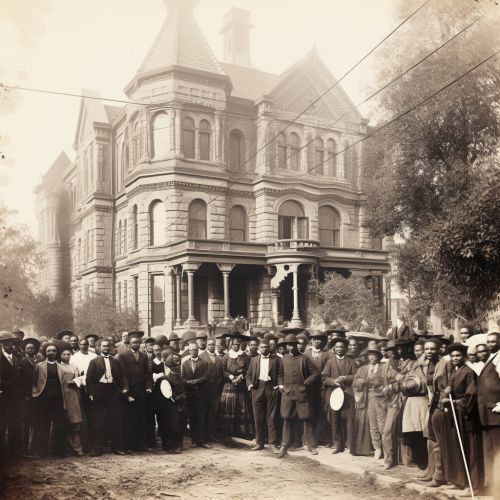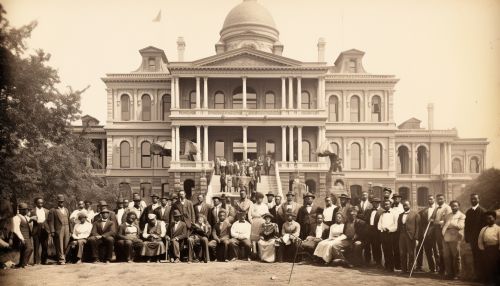Reconstruction Era
Overview
The Reconstruction Era was a significant period in United States history that took place after the Civil War, from 1865 to 1877. The era was characterized by the attempts to redress the inequities of slavery and its political, social, and economic legacy.
Origins
The term "Reconstruction Era" was coined by historians in the late 19th century to describe the time in American history immediately following the Civil War. The term is derived from the federal government's program to "reconstruct" the South after the war.
Political Reconstruction
The political aspect of the Reconstruction Era involved the implementation of new laws and amendments to the Constitution. This included the 13th, 14th, and 15th Amendments, which abolished slavery, granted citizenship to all persons born or naturalized in the United States, and guaranteed the right to vote regardless of race, color, or previous condition of servitude, respectively.


Social Reconstruction
Social reconstruction during this period involved significant changes in American society. The abolition of slavery led to the emergence of a new social class of freedmen, who sought to establish their place in society. This period also saw the rise of the Ku Klux Klan and other white supremacist groups, who sought to undermine the progress made by African Americans.
Economic Reconstruction
The economic aspect of the Reconstruction Era involved efforts to rebuild the Southern economy, which had been devastated by the war. This included the establishment of the Freedmen's Bureau, which provided assistance to freed slaves and poor whites in the South.
End of Reconstruction
The end of the Reconstruction Era was marked by the Compromise of 1877, which effectively ended federal efforts to protect the rights of African Americans in the South. This led to the rise of the Jim Crow laws, which enforced racial segregation in the South until the mid-20th century.
Legacy
The legacy of the Reconstruction Era is complex and continues to be a topic of debate among historians. While the era saw significant advances in civil rights for African Americans, these gains were largely reversed in the decades following the end of Reconstruction.
